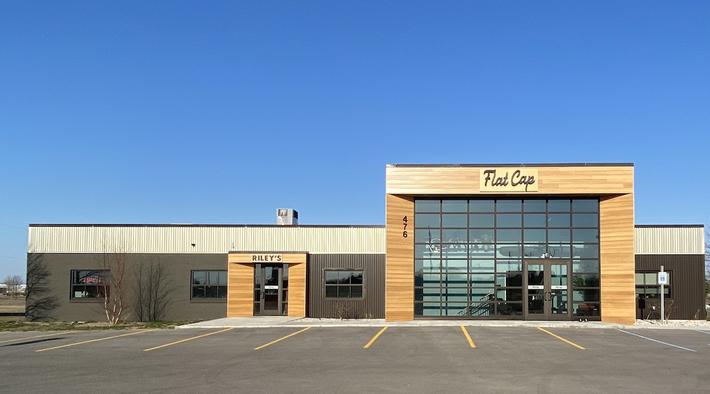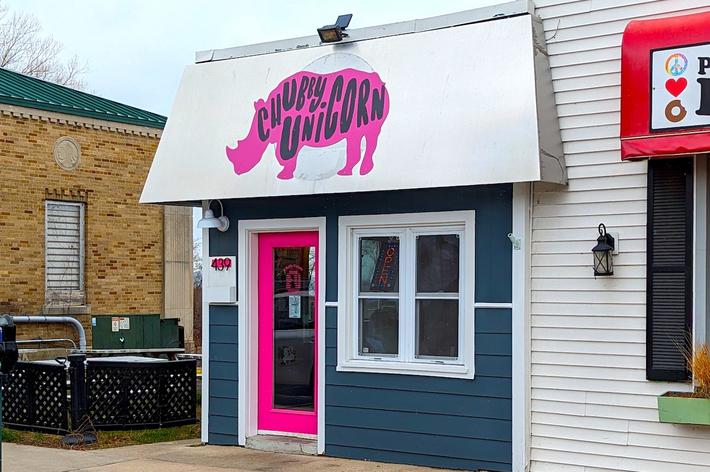Hoping for a Miracle: Home for Addicted Mothers & Kids Struggles to Re-open its Doors
Feb. 2, 2005
Stacie was homeless and carrying everything she owned in a few backpacks when she landed on the steps of Miracle Manor, a halfway home for women on State Street in Traverse City. She was on the verge of losing her five-year-old son; she was an alcoholic and drug user who knew something was wrong but didn’t know what it was. She only knew she was a failure as a mother, daughter, sister and friend who had lied, cheated, manipulated and made excuses for her life for years. “I put my son through five years of hell and I knew, deep down, I needed help.”Stacie also knew that if she went for help, she might lose her son forever.
Theresa was pregnant for the fourth time, with her first three children born with fetal alcohol syndrome. Putting her in jail was the only choice the court had to keep the unborn child safe, which meant her other children would probably be split up in foster care homes.
Miracle Manor offered an alternative and the judge jumped at it. Theresa and her boys moved in together and three months later, she delivered a healthy baby girl.
Despite having three other children, Theresa could not bond with the newborn. She held her at arm’s length, like a doll. She couldn’t bathe her, cuddle her or rock her. Through therapy, Theresa was discovered to have been molested as an infant. She couldn’t rock her baby girl because she herself needed to be rocked, a measure of love she didn’t get as a child and didn’t have to give to her baby.
Kim was facing jail time for her third DUI and her three children were facing being placed in foster care homes. Miracle Manor meant a chance for the family to begin the healing process together. The children returned to school, the family received much needed medical and dental care, and through intensive therapy, Kim began to realize what her alcohol addiction was doing to her children and started taking steps to get her life back on the right track.
HEALING PROCESS
“Women can’t heal from addiction in isolation, without their children, and children also need to heal with their mothers,” Mary O’Connor, director of Miracle Manor explains.
Miracle Manor was modeled after the successful Project SAFE, now going on its 18th year in Illinois, which has established Project SAFE houses in 19 communities and has treated more than 5,000 women and their families. One of the most innovative aspects of Project SAFE is a style of outreach work that keeps mothers and children together and treats the family. The program has eliminated many of the obstacles that have kept significant numbers of women from entering or successfully completing substance abuse treatment.
Most drug rehabilitation facilities in Michigan do not treat mothers and their children together. This realization is what keeps almost two-thirds of drug and alcohol addicted mothers across the state and nation from seeking treatment. Mothers end up in jail and children become another statistic in the foster care system.
O’Connor and her staff at Miracle Manor were working to change that trend until they had to close their doors due to a lack of finances in early December.
FAMILY NEED
O’Connor saw a need for family-centered treatment while serving as clinical director at Phoenix Hall, a residential treatment facility for women in Traverse City. Phoenix Hall had 12 beds but was typically filling only two or three. It was forced to close and women are now being treated at Dakoske Hall, which is a 40-bed facility for men, with six beds devoted to women.
In 1999, with a grant from HUD and a lot of determination, O’Connor purchased a condemned Victorian house in Traverse City and spent the next two years renovating and setting it up to accommodate mothers and their children in drug treatment.
Miracle Manor opened its doors in 2003 with space for eight families, and they were full until it had to close at the end of 2004.
The Manor employed a specially-trained staff of 11, including one counselor, and contracted with area therapists. The treatment was as comprehensive as possible, including formal therapy, mental health services, dental or medical needs, clothing, nutrition, work skills and personal empowerment.
“We tried to make every resource available to them, including re-entry when we worked on where they would live, where they would work, etc.,” O’Connor says.
RE-ADDICTED
The minimum six month commitment often wasn’t enough time for some women, who returned for additional care.
“We had some that come back for renewal,” O’Connor says. “It takes time to address all the issues that come up for some of these women and children. They also developed a sisterhood here with each other and for many, it was the first positive relationships they’ve had with anyone.
“Every addiction is about something, until you can find the reason, they’re going to relapse,” she adds. “They may have four generations of issues to deal with. Sexual abuse is very common with most addicted women, and many were abandoned or neglected as children. They are victims, too.”
Studies have shown women become addicted differently than men, they fall harder and it takes them longer to heal. Although women who get clean and sober often become less neglectful of their children’s needs, they often need interventions such as parenting training, an understanding of what makes a healthy relationship, a feeling of empowerment and improved self-esteem.
“The ultimate abuse to women is to make them choose between themselves and their kids. This is why so many won’t access the help they need for their addiction,” O’Connor says. “There is huge social shame heaped upon the heads of women with addictions who are parenting. The only help typically offered to them is to take their kids and separate them.”
Although Miracle Manor was accredited by the state, and O’Connor has the ear of Governor Granholm on her side, she is now hoping for a miracle to re-open doors to a population she sees has been overlooked by Michigan’s antiquated social systems. “It seems so obvious that the best treatment for families is to keep them together and treat them as a whole.”
VOWS TO RETURN
“There is great support in for this idea, and we firmly believe in this model of service. We will be back, if not on State Street, then somewhere else,” O’Connor says. “There is a tremendous need for this kind of treatment, not just in this area, but across Michigan and the nation. Illinois and a few other states have been successful in setting up treatment sites like Miracle Manor in many of their communities. I hope someday Michigan and other states follow suit.”
When asked if Miracle Manor was successful, O’Connor is quick to answer, “How do you measure success? Is it being sober? Is it having a newborn on a schedule for the first six months of its life, and forming a bond with its mother that will last forever? Is it a four-year-old who came in with seven cavities, who has started school and is living with its mother who now has a job? I say we were successful because we have made these women come out of the closets and let us know they are here and need help.”
The Grand Traverse Regional Community Foundation has an endow-ment fund established to help support
the work of Miracle Manor. Contact
them at 231-935-4066 or Mary O’Connor at Overlook Resources, 231-929-5281.
Trending

Springtime Jazz with NMC
Award-winning vibraphonist Jim Cooper has been playing the vibraphone for over 45 years and has performed with jazz artist... Read More >>
Dark Skies and Bright Stars
You may know Emmet County is home to Headlands International Dark Sky Park, where uninterrupted Lake Michigan shoreline is... Read More >>
Community Impact Market
No need to drive through the orange barrels this weekend: Many of your favorite businesses from Traverse City’s majo... Read More >>


